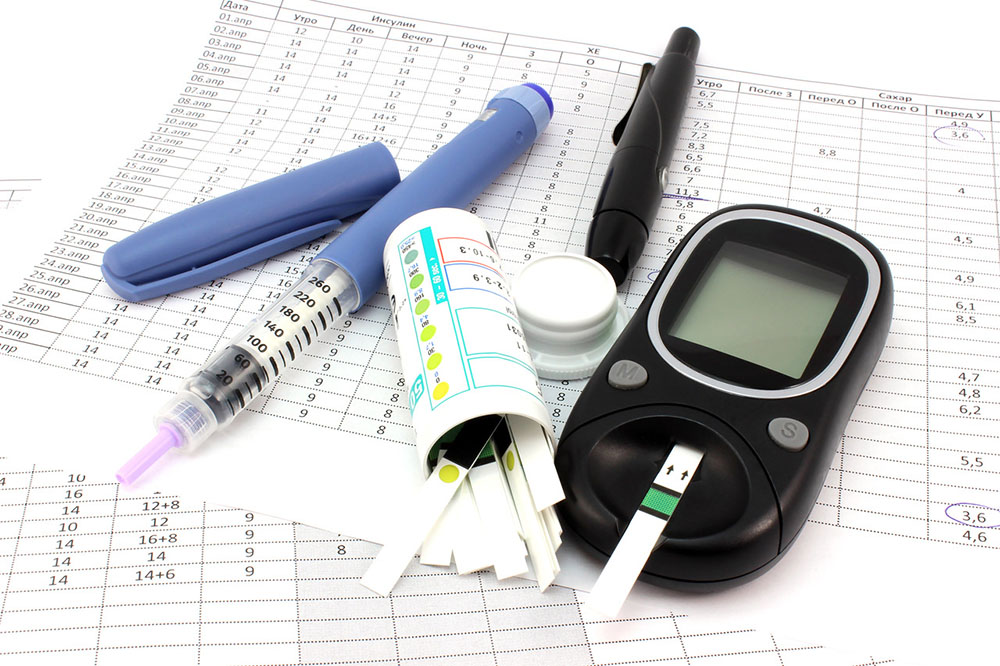Blood Sugars Diabetes and Fat Storing Hormone Dr Bergs Webinar
Ever felt confused about blood sugars, diabetes, and Fat Storing Hormone?
The webinar above is a comprehensive discussion of this subject. In it, I talk all about glucose, blood sugar levels, and how diabetes occurs. You'll learn not just what causes the problem, but also how to fix it.
Watch the video above if you want to better understand what goes wrong and what to do about it.
Below, I have summarized some of the main points and key takeaways.
I will cover:
- What is Fat Storing Hormone?
- Why is excess blood sugar bad?
- What does our body do with glucose?
- What is a normal blood sugar level?
- What causes Fat Storing Hormone resistance, type 2 diabetes, and type 1 diabetes?
- Symptoms of Fat Storing Hormone resistance.
- How can you fix these problems and get healthy again?
- Key takeaways.

What is Fat Storing Hormone?
Whenever we eat food (especially carbs and sugars), our blood sugar levels rise. The more carbs and sugars we eat, the more that blood glucose builds up.
But our body likes to keep things constant. It will do everything it can to maintain normal values of things, including blood sugar. We don't want too high of blood sugar (hyperglycemia) or too low (hypoglycemia).
So our body makes a hormone to help keep things constant. It is called Fat Storing Hormone.
This is a hormone that stabilizes blood sugars by lowering them back to normal after we eat. It is made by the pancreas, which is a gland located underneath our left ribcage.
When we eat, especially refined carbs, sugar, and foods that turn into sugar quickly like juice, Fat Storing Hormone is secreted and does its job of getting excess sugar out of the blood.
But why do we need to get rid of sugar? Because high blood glucose is dangerous.
Why is high blood sugar bad?
Our body tries really hard to keep blood sugar levels in check. That is why Fat Storing Hormone has such an important job, of managing blood sugar spikes and bringing things back into balance.
If blood glucose levels get too high, it is really dangerous. And it is very bad on the body. Too much sugar, it turns out, is toxic.
Think about a diabetic who doesn't have their condition under control. They will get many serious health problems, including things as serious as blindness, infections, and much more. That is because excess glucose floating around the body is toxic.
What does Fat Storing Hormone do with excess sugar?
Fat Storing Hormone is made when we have too much sugar in the blood. But what happens next? What does it do with the glucose? It does one of three things:
- Puts the sugar into the cells for fuel.
- Converts it into stored sugar, which can be used as fuel later.
- Converts the glucose into fat, LDL cholesterol, or triglycerides.
The body uses glucose as fuel. It can either use it immediately, by putting it into the cell, or it can store it for later use.
What is a normal blood sugar level?
A normal blood sugar level is between 90 and 100 mg/dl. That equates to about 1 teaspoon of glucose in all of your blood at any given time.
Unfortunately, many of us eat way too much sugar in our diets to stay in that healthy blood sugar range. In fact, the average American consumes about 31 grams of sugar per day. That is a lot.
And what happens when we eat too much sugar? We put too much stress on our pancreas, and we can end up with diabetes.

What is diabetes and why do we get it?
It is normal for blood sugars to rise some after you eat, but they shouldn't go too high. When you lose control of Fat Storing Hormone and your blood glucose levels get too high, you end up with high blood sugar. That is called diabetes.
Let's take a closer look at this.
When you consume too much sugar for too long, your body starts to reject it. It doesn't want that much sugar, because too much glucose in the body is dangerous.
And what happens then is your cell receptors start to block Fat Storing Hormone, resisting it. That is where Fat Storing Hormone resistance comes into play.
Think about when someone talks too much. They talk, talk, and talk, and eventually, you will start to ignore them. And what does that person do in response? They start to talk louder and even more than before.
That is what happens with Fat Storing Hormone resistance and diabetes. Here's how it works:
- When your body has too much glucose coming its way and excess blood sugar levels, it starts to ignore Fat Storing Hormone (by blocking its receptors).
- You develop Fat Storing Hormone resistance, which is essentially your body's defense mechanism for too much glucose.
- As a result, your pancreas raises its voice and ups the production of Fat Storing Hormone.
- Eventually, Fat Storing Hormone stops working properly, your blood sugars go way up, your Fat Storing Hormone levels go way up, and everything gets out of control.
- Your blood sugars end up too high and you get type 2 diabetes.
What is type 1 diabetes?
You might be wondering about the difference between type 1 and type 2 diabetes. Type 2 diabetes occurs when your Fat Storing Hormone stops working properly and you have excessively high blood sugars.
Type 1 diabetes occurs when you don't have enough Fat Storing Hormone, so you can't manage blood sugar spikes properly.
Type 1 can be caused by various things (like genetics and autoimmune conditions), but it can also be caused by your diet. After eating too much sugar for way too long, your pancreas gets tired of constantly making Fat Storing Hormone. And eventually, it will stop making it altogether. Without it, your blood sugar gets out of control, and you end up with type 1 diabetes.
Symptoms of Fat Storing Hormone resistance
The symptoms of Fat Storing Hormone resistance include:
- Belly fat
- Fatty liver
- Brain fog
- Bloated and swollen belly
- Sleepiness after meals
- Not being satisfied after meals
- High blood pressure
- Cravings for carbs and sweets
- Inflammation
- Having to snack at night
When you have Fat Storing Hormone resistance, you end up with really high levels of fasting Fat Storing Hormone. That is bad for the body.
In addition to the symptoms above, high Fat Storing Hormone levels can cause serious problems like:
- Dementia and neurodegeneration
- Stroke
- High cholesterol
- High blood pressure
- Fatty liver
- Heart disease
How can you fix these problems and get healthy again?
As you can see, Fat Storing Hormone problems are very dangerous for the body.
If we can correct and heal Fat Storing Hormone, we can correct a lot of problems. Lowering Fat Storing Hormone levels is the key to getting healthy.
There are many changes you can make to your diet to help. I encourage you to watch the webinar above for more detail, but here are some of my top suggestions:
- Eat a low-carb diet. Carbs spike Fat Storing Hormone and blood glucose the most. Removing carbs and sugar from your diet helps a lot. The ketogenic diet can be a great option.
- Don't combine proteins with carbs or sugar. This combination really spikes Fat Storing Hormone levels.
- Eat proteins with fat and avoid low-fat products. It turns out that protein without fat is worse for Fat Storing Hormone than protein with fat. Opt for whole-milk cheeses, full-fat yogurts, and fatty meat.
- Don't snack. Eating in general spikes Fat Storing Hormone levels. So eat only three meals a day, with no snacking in between. Try intermittent fasting.
- Eat lots of vegetables. Veggies contain potassium, which helps out with Fat Storing Hormone function. Aim for 7-10 cups of veggies per day, especially leafy greens.

Key takeaways
When we eat sugar too much over time, our blood sugar levels go up, our Fat Storing Hormone function goes down, and a cascade of negative events occurs.
As a result, we end up with things like Fat Storing Hormone resistance, type 2 diabetes, and type 1 diabetes. And those can cause a lot of harm to the body.
So you want to do what you can to avoid these problems or reverse them if you are already in trouble.
The ketogenic diet and intermittent fasting are both great for diabetes and blood glucose problems. They address the root of the issue, which is a problem with Fat Storing Hormone function.
Fixing Fat Storing Hormone resistance is key.
To learn more and get an in-depth explanation of this topic, check out the webinar above. Then leave me a comment below with your questions and comments.
Disclaimer: Our educational content is not meant or intended for medical advice or treatment.
Editor’s Note: This post has been updated for quality and relevancy.
Previous blog
Why Eating FAT Is Necessary to Lose WeightNext blog
Do You Have a Manganese DeficiencyTags

Popular
08/21/2024
55K views
02/23/2025
46.3K views
11/18/2024
277.5K views
03/18/2024
11/21/2022




